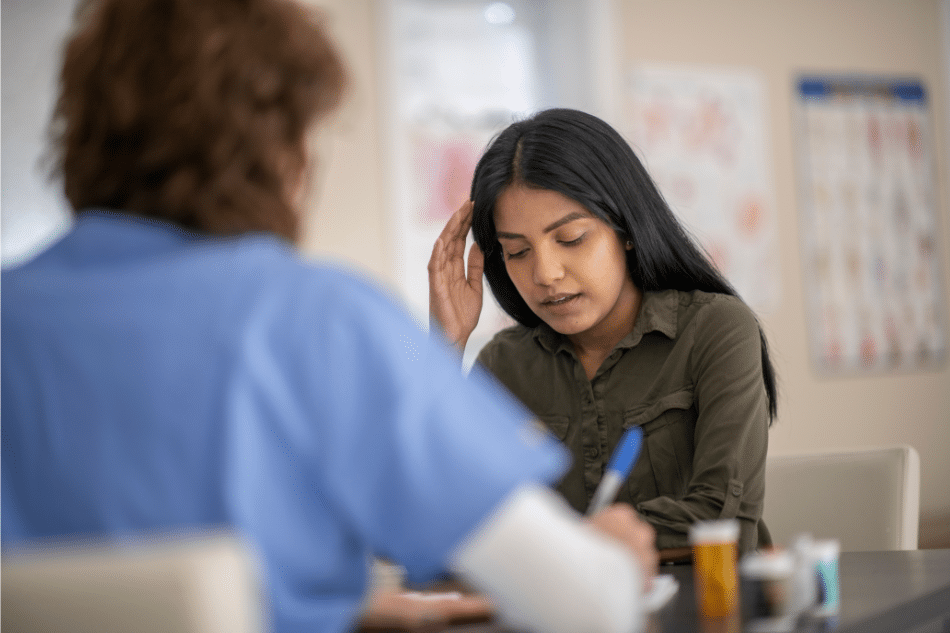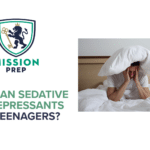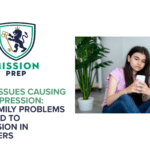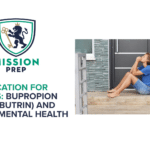- What We Treat
- Anxiety
- Depression
- What Is Teen Depression?
- Common Signs of Depression in Teenagers
- Causes of Depression in Teens
- Mental Health Resources in School and Counseling Support for Teen Depression
- Benefits of Residential Treatment for Teens With Depression
- Therapy Options for Teenage Depression
- How to Talk to Your Parents About Getting Help for Depression
- Alternative and Holistic Treatments for Teen Depression
- Medication for Teen Depression
- Healthy Ways to Cope with Depression as a Teen
- Impact of Depression on School, Friendships, and Daily Life
- How Depression Affects the Teenage Brain
- Recognizing Hidden Depression in High-Achieving Teens
- Gender Differences in Teen Depression
- Depression and Anxiety in Teens: What Makes Them Different and How Do They Connect?
- Bipolar Disorder
- Mood And Thought Disorder
- Trauma And PTSD
- ADHD
- Schizophrenia
- Technology Dependence
- Academic & Social Challenges
- Self-Harm
- Psychosis
- Anger Treatment
- Trauma and Abuse Treatment
- Mental Health Services
- Cognitive Behavioral Therapy
- EMDR Therapy
- Transcranial Magnetic Stimulation (TMS)
- Acceptance and Commitment Therapy for Teens
- Narrative Therapy for Teens
- Mindfulness-Based Cognitive Therapy
- Somatic Therapy for Teens
- Internal Family Systems for Teens
- Benefits of Psychodynamic Therapy for Teens
- Art Therapy for Emotional Expression in Teens
- Locations
- Programs
- Cost
- About Us
- Resources
- Blog
- Resources for Teachers & Community Leaders
- Building a Mental Health Action Plan for Your School
- Recognizing Warning Signs of Teen Mental Illness
- How to Communicate With Families
- How to Identify Early Warning Signs of Mental Illness in Students
- Reentry Plan for Students: Supporting a Student After Mental Health Leave
- Supporting LGBTQ+ Youth in Crisis
- Implementing School-Based Mental Health Screenings
- Resources for Parents & Caregivers
- When Your Teen Refuses Help: Resistance to Treatment
- The Role of Nutrition and Sleep in Teen Mental Health
- De-escalation Techniques for Crisis Situations
- Talking to Teens About Domestic Violence
- Panic Attack Intervention Tips for Teens
- Recognizing Psychosis in Teens: How to Intervene
- PTSD Interventions for Teens
- Severe Depression in Teens
- Legal Rights for Patients & Families
- Washington State Teen Mental Health Rights
- California Mental Health Laws for Teens
- Virginia Teen Mental Health Laws
- The Role of Mental Health Tribunals
- Recognizing Mistreatment in Adolescent Mental Health Treatment
- Teen Psychiatric Hospitalization: Voluntary vs. Involuntary Commitment
- Understanding 504 Plans and IEPs for Mental Health Needs
- The Role of Guardianship in Adolescent Mental Health Care
- Teens & Mental Health Rights: Confidentiality & Consent
- Mental Health Rights in Juvenile Justice Settings
- Parent’s Guide to Mental Health Support
- What to Do When Your Child Is in a Mental Health Crisis
- How Families Can Be Involved in Residential and Outpatient Care
- Is Residential Treatment Right for Your Teen?
- How to Prepare for Your Child’s Admission to Residential Treatment
- Setting Boundaries When Supporting Someone in Treatment
- Supporting a Child with Severe Mental Illness
- Supporting Your Child in Treatment
- What to Say to Someone in a Mental Health Crisis
- Recognizing Codependency in Teens
- Building a Long-Term Support Network for Your Child
- Supporting Teens with Severe Mental Health Conditions
- Recognizing and Responding to Parental Burnout
- Supporting a Teen with Co-Occurring Disorders
- Financial Planning for Teen Mental Health Treatment
- Breadcrumbing in Teen Relationships
- What Is the Gen Z Stare?
- Bed Rotting and Mental Health
- What Is Bathroom Camping?
- Benching in Teen Relationships
- What Is Banksying in Teen Culture?
- Trauma Dumping vs Healthy Sharing
- Cancel Culture Anxiety in Teens
- What Is Teen Crashing Out?
- Orbiting and Teen Mental Health
- Doomscrolling and Teen Mental Health
- Retroactive Jealousy in Teens
- What Is Phubbing?
- Confidentiality and Mental Health Referrals
- Case Workers: Referring Teens to Residential or Outpatient Care
- When to Escalate a Mental Health Concern
- Mental Health Referral Guide for School Counselors
- How Pediatricians Can Support Mental Health Referrals
- Mental Health Referrals From Child Protective Services
- Referrals From Community Mental Health Services
- Understanding Juvenile Court Mental Health Referrals
- Mental Health Referrals From Crisis Hotlines
- Disability Services Mental Health Referrals for Teens
- Mental Health Referrals From Domestic Violence Centers
- Mental Health Referrals From Hospitals
- Referrals From Interventionists
- Referrals From Outpatient Therapists for Teens
- Urgent Psychiatric Care Referrals for Teens
- The Role of Pastoral Referrals
- Mental Health Referrals From Veterans Affairs Medical Centers
- Overcoming Common Barriers to Mental Health Treatment
- Stigma and Guilt Around Seeking Mental Health Care
- Taking Time Off School for Mental Health
- Creating a Plan for When Your Child Returns Home
- How to Mentally Prepare for Leaving Your Home for Residential Treatment
- Navigating Mental Health Treatment While in School
- Tips for Explaining Your Absence to Friends and Family
- Innovative Treatments in Mental Healthcare
- Mental Health Assessment and Diagnosis for Teens
- Self-Help Strategies for Teens
- Talking to Your Parents About Your Mental Health Struggles
- Cognitive Behavioral Therapy Techniques for Teens
- Grounding Techniques for Teen Anxiety & Panic Attacks
- Journaling for Teen Mental Health
- Mindfulness & Meditation for Teens
- Exercise & Teen Mental Health
- How to Identify Your Emotional Triggers
- Glow-Up Plans for Mental and Physical Health
- Types of Antidepressants for Teens
- Best Selective Serotonin Reuptake Inhibitors for Teens
- Fluoxetine (Prozac) for Teens
- Sertraline (Zoloft) for Teens
- Citalopram (Celexa) Antidepressant for Teens
- Escitalopram (Lexapro) for Teens
- Paroxetine (Paxil) for Teens
- SNRIs for Teenagers: Are They Safe?
- Venlafaxine (Effexor XR) for Teens
- Does Duloxetine Work for Teens?
- Desvenlafaxine (Pristiq) for Teens
- Tricyclic Antidepressants for Teenagers
- Nortriptyline (Pamelor) and Mental Health in Teens
- Bupropion (Wellbutrin) and Teen Mental Health
- Antipsychotic Medications for Teens
- Second-Generation Antipsychotics for Teens
- Risperidone for Teen Mental Health
- Olanzapine: Is Zyprexa Safe for Teens?
- Seroquel: Quetiapine for Teens
- Aripiprazole (Abilify) for Teens
- Lurasidone for Treating Teen Mental Health
- Clozapine for Teens
- First-Generation Antipsychotics for Teens
- Haloperidol (Haldol) for Treating Adolescent Mental Health
- The Definitive Guide to Chlorpromazine (Thorazine) for Teens
- Mood Stabilizers for Teens
- Anti-Anxiety Medications for Teens
- Stimulants for ADHD in Teens
- Sleep Aids for Teenagers With Insomnia
- Mental Health Support for Military Teens
- Dealing With Academic Pressure as a Military Teen
- Coping With Relocation: Mental Health Strategies for Military Teens
- Returning Home From Deployment: Helping Teens Adjust
- Family Counseling for Military Households
- How Deployment Impacts Teen Mental Health
- Mental Health Apps and Online Communities for Military Youth
- Maintaining Long-Distance Friendships as a Military Teen
- Making New Friends: Building Confidence in Military Kids
- Constantly Moving: Military Impact on Teen Identity
- Military Life and Teen Anxiety
- Signs of Depression in Teens From Military Families
- Navigating Grief and Loss in Military Youth After a Tragedy
- Teen Suicide Risk in Military Families
- Teen Mental Health: When Parents Transition Out of Service
- Navigating Loneliness and Isolation in a Military Household
- Mentorship for Military Youth
- PTSD by Proxy in Military Families
- Supporting a Child’s Mental Health While Your Spouse Is Deployed
- How to Talk to Civilian Friends About Military Life and Mental Health
- Creating Safe Spaces for Military Teens
- What to Expect from Therapy for Military Teens
- Toxic Resilience in Military Youth
- TRICARE Mental Health Benefits for Adolescents
- Perinatal Mental Health Support for Teens
- Navigating High School While Pregnant
- The Impact of Trauma on Teen Pregnancy
- Comprehensive Care Models for Teen Pregnancy
- Support Strategies for Teen Coparents
- How to Create a Nurturing Environment for Pregnant Teens
- Teen Pregnancy and Perinatal Anxiety: Early Intervention Strategies
- Effective Therapies for Teen Mothers
- How Hormones Impact Teen Mental Health in Pregnancy
- How Teen Moms Can Use 988 Crisis Lifeline
- The Importance of Mental Health Screening During Teen Pregnancy
- Inpatient vs. Outpatient Mental Health Treatment for Teen Moms
- Integrating Mental Health Care into Teen Parenting Programs
- Mental Health Resources for Young Dads
- Mindfulness and Trauma-Informed Therapy for Teen Moms and Dads
- OBGYN Referrals for Perinatal Mental Health Care
- Peer Support Groups for Pregnant Teens
- Postpartum Depression in Teen Moms
- Postpartum Psychosis in Teens
- Access to Prenatal Care for Teen Moms
- Supporting Teens Through Unplanned Pregnancy
- Teen Anxiety: Triggers, Signs, & Effects
- Attachment Styles in Teenagers
- Anxious Attachment in Teens
- Avoidant Attachment in Teens
- Codependency in Teens: Causes & Signs
- Complex PTSD and Attachment Issues in Teens
- DSED in Teens: What Is Disinhibited Social Engagement Disorder?
- Disorganized Attachment Style in Teens
- Reactive Attachment Disorder (RAD) in Teens
- Secure Attachment in Teens: Signs of Healthy Teen Attachment
- Attachment Interventions in Youth
- Attachment and Perfectionism in Teens
- Attachment in School
- Attachment Styles and Ghosting
- Breaking the Cycle of Insecure Attachment
- C-PTSD and Attachment Trauma
- Dismissive Avoidant vs Fearful Avoidant Attachment
- Neurodivergent Attachment Styles: How Developmental Disorders Impact Attachment
- Eating Disorders and Attachment
- What Is Family Enmeshment?
- Fear of Abandonment in Teens
- Healing Attachment Wounds in Teens
- What Causes Insecure Attachment and Anger Issues in Teens?
- Attachment Internal Working Model Explained
- Building Trust in Therapy for Teens
- Dealing With Teen Limerence
- Parent Child Synchrony and Attachment
- Schema Theory and Attachment Explained
- Institutional Care and Attachment Disorders
- What Is Borderline Personality Disorder (BPD)?
- What Is Horticultural Therapy?
- What Is a Nervous Breakdown?
- Causes of Nervous Breakdowns in Teens
- Identity Crisis in Teens
- Nervous Breakdowns in Teen Boys: Hidden Causes & Risks
- How to Prevent a Nervous Breakdown in Teens
- Physical Symptoms of a Nervous Breakdown in Teens
- Recovering From a Nervous Breakdown in Teens
- Faith & Existential Nervous Breakdowns in Teens
- Sleep Deprivation in Teens
- When to Get Help for a Nervous Breakdown
- Nervous Breakdown Triggers in Teen Girls
- Teenage Narcissism
- Eating Disorders in Teens: A Guide for Families
- Somatic Symptom Disorder in Teens
- OCD in Teens
- Dissociative Identity Disorder in Adolescents
- Seasonal Affective Disorder in Teens
- Psychosomatic Disorders in Teenagers
- Adjustment Disorders in Teenagers
- Emotional & Behavioral Symptoms in Teens
- Teen Irritability
- Teen Social Withdrawal
- Excessive Guilt & Shame in Teens
- Crying Spells in Teens
- Emotional Numbness in Teens
- Self-Destructive Behavior in Teens
- Teen Mood Swings
- Emotional Overreactions in Teens
- Teen Impulsivity
- Dissatisfaction With Life in Teens
- Anhedonia in Teens
- Pulling Away After an Argument
- Hypomania in Teens
- Self-Criticism in Teens
- Difficulty Talking About Feelings
- Teen Avoiding Responsibilities
- Distressing Memories in Teens
- Physical & Stress-Related Symptoms in Teens
- Teen Panic Attacks
- Skin Picking in Teens
- Heart Palpitations in Teens
- Teen Hypervigilance
- Nausea in Teens
- Stress & Emotional Eating in Teens
- Headaches in Teens
- Teen Chronic Fatigue
- Muscle Tension and Trembling in Teens
- Teen Loss of Appetite
- Fidgeting in Teens
- Teeth Grinding in Teens
- Restlessness in Teens
- Sweating or Shaking During Stress
- Why Teens Can Get Sick Often
- Anxiety-Related Pins and Needles in Teens
- Frequent Urination in Teens
- Changes in Sexual Curiosity in Teens
- Anxiety & Faint Feelings in Teens
- Cognitive Issues in Teens
- Racing Thoughts in Teens
- Teen Dissociation
- Memory Problems & Brain Fog in Teens
- Intrusive Thoughts in Teens
- Disorientation in Teens
- Teen Indecisiveness
- Overthinking & Negative Thought Patterns in Teens
- Forgetfulness in Teens
- Losing Track of Time Due to Stress or Anxiety
- Fear of Being Judged in Teens
- Mind Going Blank in Stressful Situations
- Concentration Problems in Teens
- Paranoid Thoughts About Friends
- All-or-Nothing Thinking in Teens
- Risky Decision-Making in Teens
- Information Overload in Teens
- Teen Confusion & Misremembering
- Rigid Thinking in Youth
- Scary Mental Images in Teens
- Sleep Problems in Teens
- Social & Interpersonal Symptoms in Teens
- Teen Codependency
- Teen Trust Issues
- Teen Fear of Abandonment
- People-Pleasing in Teens
- Conflict Avoidance in Teens
- Teen Jealousy & Insecurity
- Approval-Seeking in Teens
- Controlling Behavior in Teens
- Trying Too Hard to Impress Others
- Trust Problems in Teens
- Teen Difficulty Accepting Help
- Oversharing in Teens
- The Impact of Social Comparison on Teens
- Fear of Rejection in Teens
- Avoiding Eye Contact in Teens
- Teen Mistrust of Adults
- Feeling Like a Burden
- Over Apologizing in Teens
- Contact Us






















